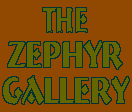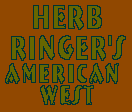 |
||||||
|
|
I immediately thought of Henry David Thoreau who celebrated walking, claimed that his life would be more or less meaningless if he couldn’t walk a lot. (1) But he called it "sauntering," derived from an old French phrase, a la Sainte Terre, meaning, according to nineteenth century scholarship, those who in medieval times set out on long journeys to the Holy Land, or from those who merely pretended such a journey but were in reality "mere idlers." (2) Thoreau, as usual, embroiders these meanings, making "Holy Land" a symbol for a true goal of walking, that is, a rejuvenation of spirits that comes with fully engaging the world. He wonders how people stand to stay indoors for most of their lives. Especially women: "How womankind, who are confined to the house still more than men, stand it, I do not know; but I have ground to suspect that most of them do not stand it at all." "Idler" comes into it too, for this most observant of men. Once he climbed a white pine, discovered in top branches its blossoms, a sight never seen from the ground. He claimed that when he set out on a walk he let his instinct set the direction; its compass needle wavers for a while, eventually settles on west or southwest. That opens the way to one of his most often quoted, and misquoted, statements: "In wildness is the preservation of the world." And all of this, we have to understand, has a vital undercurrent of meaning: take the time, pay attention, let nature show you things, allow your impulses, your inner wildness, start you up a tree. That is, walking as a form of idling. These gifts the island gives: the moose swimming across the harbor the moon rising above fog flowers along the trail the sweet gift of birdsong you can’’t wait for the island to come to you - the gifts are given without warning. You must be there watching, listening, and the gift must move like water - You must pass it on in whatever way you fashion. Gary Lawless, For the Earth Watchers, in Caribouddhism. 1998. Blackberry Books. Watching and listening, a way into the world. That’s the claim of us walkers of the idling type. If you are a seasoned hunter or fisherman I’m counting on you to not immediately sneer at that claim. Though you might use a jeep, bike, four-wheeler or pickup to racket your way to a certain place, you then switch over to quietly paying attention. You know what I’m talking about. You probably save your disdain for the macho inexpert, the smash and grab who swashbuckles in, expecting nature to deliver, pronto. "Enjoying nature," "appreciating nature," we hear such words often, they point to an infinite range of individual experiences. Looking at the passing scene through a windshield is an experience, there’s no denying that, and no one can take that away from anyone. But scenery ("viewsheds," as the official jargon has it) is not the whole story; it’s a puzzle piece from a bigger story. Walk into the natural world. It does not have to be wilderness. We walk, not always quietly. Twigs snap, we scrape branches, staying alert best we can. We are a certain species with particular gifts. We can’t slither like a snake, trot like a badger, fly like a hawk disappear like a shrew. But we have color vision and walk somewhat upright and carry with us a marvelous fund of facts and surmises and replays of the past. Walking alert brings those gifts into full play. It’s almost like magic, but it’s not. It is humans using terrific gifts created by at least a million years of being human. It’s not always fun, sometimes it’s downright unpleasant, even dangerous. Animals ignore us, threaten us or run away; sometimes we’re pestered by spiny plants or stinging critters; often we’re too wet or too hot or too cold. No one of the other species invites us into the wide world, but somehow or other, sooner or later, we notice we have been captured, we’re members of the wide world. Cave Dog (Cave Canem, "Beware of the Dog"?) will see many interesting features in his rush through the landscapes, "setting a 3 mph pace," but the goal is to set a record. That removes it a continent away from the sauntering way that waits for suggestions from the trees and rocks and animals, from the play of light on undersides of leaves, the thousand sounds and patterns made by wind and water and the distant hint of some critter’s foot scraping rock or entering water. From the host of wilderness people Cave Dog could have decided to honor, he picked Bob Marshall, a restless man saddled with that 30 miles in every state. There was a strong conquering streak in Bob’’s makeup. He climbed unnamed mountains and gave some of them names; he explored "empty" lands signified by white spaces on the map of Alaska. At least one of Bob’s friends expressed a wish that he would slow down just a little. But he was not a "people are no damn good" hermit; he enjoyed society, valued every one of us; he wrote a book, seldom mentioned, entitled "The People’s Forests." A complicated human being. So yes, "completing" his goal of 30 in all 50 is in tune with this powerful personality, this staunch defender of wilderness. But I back off from it, disgusted. Just another one of those extreme sport affairs, teamed with an outdoor recreation outfit eager to grab a bigger market share. Using nature’s landscapes and inhabitants to establish a record is near the top of my list of futilities. The inwardness of it all! Embarrassing. What good does it do in this world that needs good deeds done, everywhere and soon? I mean, who gives a rat’s tail who was the first to ski down one of the Grand Teton’s couloirs, or won the Guinness Book’s endurance record for keeping a ferret in his pants? Come on guys, get real. Why not trace John Muir’s walk to the Gulf Coast? Bring food and water and outdoor gear to where it’s needed. They will thank you, I’m sure, provided you don’’t brag too much. Not that us foot people are angels, but let’s talk about that some other time. Right now we are up against Nature as horror, watching a tragic drama staged by the powers of Ocean and Air. Katrina has exposed for all willing to see that there are people in this land without vehicles or the money to buy them, or to own a lot and a house. People left behind. What harsh and bitter laughter, if they should happen to notice our squabbling about who really digs nature and who doesn’t. Thoreau at Katadin met a certain version of nature’s sublime indifference toward humankind, but that was an individual discovery. And John Muir too had a similar moment of revelation when he stood on the edge of Yosemite valley facing nature’s awful might that built the glaciers that built the valley. David Brower and Bob Marshall and Aldo Leopold and the other wilderness stalwarts knew the dark side of nature, knew from their own experience that it was not a theme park, not a National Geographic set of benign pictograms, not a petting zoo. But they wrote of their experiences as individuals, and downplayed dangers, for the most part. After all, their job was to convince the public that wilderness was a good place and well worth the saving. But now, we grope for a collective knowledge of all of it, the whole shebang, good and bad, deep shadows, gulfs of powers far outside our dominion. After Katrina, after Tsunami, after subtle warming of the planet, after shifting of massive ocean currents, after Tigris and Euphrates, after drought and fire and glaciers melting, after volcanos with a mind of their own ... it is time to admit we struggle for survival on a very active planet and that science can’t change that, nor can the Army Engineers. Let’s step down from the terribly dangerous lord and master pose and get to work. Now, while the waters of New Orleans lie deep and poisonous. So that we don’t forget. So that we can disagree with each other while standing firm on a shared agreement. From that collective wisdom, who knows what marvels might come to be? Look, we are mammals tramping the surface The warmth we have is small and not lasting Judith McCombs, Against Nature: Wilderness Poems. 1979. Dustbooks. Aids to memory, from a Fourth of July speech by former slave, Frederick Douglass. "Your national greatness, swelling vanity, your denunciation of Tyrants, brass-fronted impudence, your shouts of liberty and equality, hollow mockery; your prayers and hymns, your sermons and thanksgivings, with all your religious parade and solemnity, are, to Him, mere bombast, fraud, deception, impiety, and hypocrisy ... a thin veil to cover up crimes which would disgrace a nation of savages." Another aid, from a post-Katrina remark by our president. "The good news is ... and it’s hard for some to see it now ... that out of this chaos is going to come a fantastic new Gulf Coast, like it was before. Out of the rubble of Trent Lott’s house ... he’s lost his entire house ... there’s going to be a fantastic house. And I’m looking forward to sitting on the porch." (1)Thoreau’s Walking, was published by Atlantic Monthly in 1862, shortly after Thoreau’s death. Republished recently by Applewood Books. All Thoreau quotes above are from that essay. (2) My dictionary derives saunter from Middle English "sanire" to muse, to meditate; probably from Old French saint. | |||||






